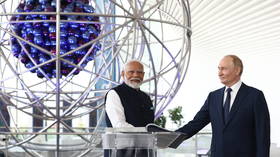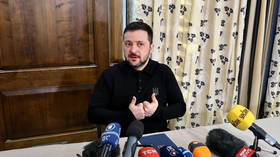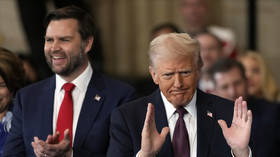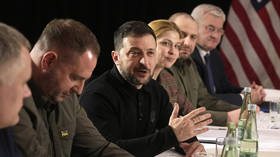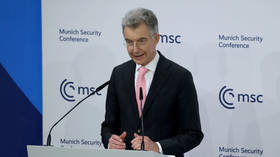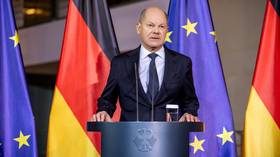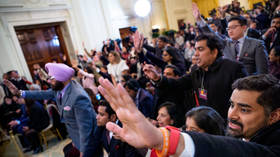US ‘bully’ trying to divide India and Russia – expert
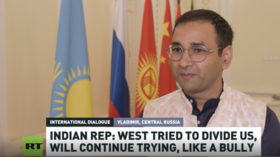
The West has “tried unsuccessfully” and continues attempts to create a division between India and Russia, a New Delhi-based academic told RT. Speaking on the sidelines of a conference in Vladimir, Russia, Dr. Sonu Saini, an assistant professor at Jawaharlal Nehru University, told RT that the Indian government has been “stern” in its response to efforts to wean it away from Moscow.
“The US is like a bully who tries one way, then another, and then a third way,” according to Saini, warning that “the US will not stop in its attempts.”
“Our country has already defended our position” and has decided to take a stand, he said.
His comments come days after Washington raised “concerns” over New Delhi’s ties with Moscow, following Indian Prime Minister Narendra Modi’s recent visit to Moscow for a bilateral summit with Russian President Vladimir Putin.
India has come under intense scrutiny from the US-led West over its ties with Russia. New Delhi has refused to condemn Russia over the Ukraine conflict and has ramped up purchases of Russian oil and coal.
Earlier this month, New Delhi and Moscow agreed to increase trade to $100 billion annually by 2030 by diversifying interests and increasing India’s exports to Russia. During the previous financial year, bilateral trade amounted to over $63 billion, nearly six times larger than the average $10-13 billion trade turnover the two countries maintained in the five-year period before 2022.
The summit between the two leaders, which included both informal conversations at Putin’s Novo Ogaryovo residence and formal talks at the Kremlin, came under scrutiny from critics in the West. Senior officials in the administration of US President Joe Biden are reportedly uncomfortable with the optics of the summit, according to the Washington Post.
Commenting on the visit, US Ambassador to India Eric Garcetti said he respects India’s desire for strategic autonomy. “But in times of conflict, there is no such thing as strategic autonomy.” A spokesperson for New Delhi’s Foreign Ministry responded on Friday, saying the India-US relationship allows for mutual respect and the ability to “agree to disagree” on various matters.
On Friday, US National Security Adviser Jake Sullivan said Washington is seeking to convince New Delhi that deepening ties with Russia and China will create difficulties for US-India relations. Sullivan visited India last month, days after Modi took office for his third term.
Indian Foreign Minister Subrahmanyam Jaishankar has repeatedly stressed that India will pursue a path of “strategic autonomy” and continue purchasing oil and other commodities from Russia. Government officials have also expressed skepticism over the unilateral sanctions imposed on Russia by the West.
Diplomatic ties between India and the US have also been strained over an alleged murder plot against New York-based Sikh separatist movement leader Gurpatwant Singh Pannun, who the Indian government designated a terrorist. In recent months, New Delhi has also lashed out at the US State Department and NGOs over comments on alleged violations of human rights and religious freedoms in India.
